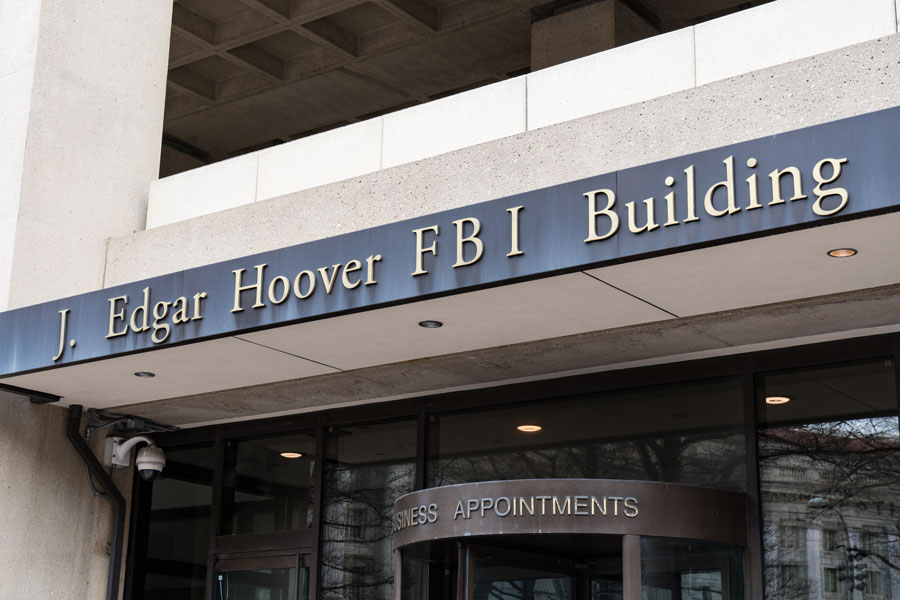FBI Conducts Regional Workshops in Boca Raton and Fort Pierce Florida

MIAMI, FL – The Federal Bureau of Investigation (FBI) Miami along with the FBI’s Behavioral Threat Assessment Center conducted a series of workshops last week in Boca Raton and Fort Pierce, Florida, to address ways to prevent terrorism and mass casualty violence. These workshops were conducted in support of the FBI’s national Threat Assessment and Threat Management (TATM) initiative.
The workshops, conducted between December 1st and 3rd, included participants from law enforcement and other partners such as schools, institutions of higher education, community mental health organizations, and federal and state prosecutors.
After the September 11, 2001, attacks, the mission, focus, and culture of the FBI shifted to reflect a new top priority: preventing acts of terrorism. This shift to a more proactive and prevention-based approach meant making significant legal and structural changes within the U.S. government to improve information sharing among intelligence agencies. It also meant working to improve communication and collaboration with law enforcement partners through the FBI’s Joint Terrorism Task Forces (JTTFs) and other partnership efforts. Shortly after September 11, the FBI’s Behavioral Analysis Unit 1 was established to support prevention through the application of behaviorally based operational support, training, and research. Over the years, the unit has evolved into the Behavioral Threat Assessment Center, a multiagency, multidisciplinary task force that provides investigative and operational support for the FBI’s most complex, concerning, and complicated terrorism investigations.
In November 2019, the FBI published the Lone Offender Terrorism report, which examined 52 ideologically motivated lone offender terrorist attacks conducted in the United States between 1972 and 2015. Prior to that, in June 2018, the FBI published A Study of the Pre-Attack Behaviors of Active Shooters, which examined the pre-attack behavioral indicators of 63 different active shooters in the United States between 2000 and 2013. Both of these reports concluded that, while the motivators and drivers for violence are highly individualized, those who commit violence travel an observable and discernable pathway from thought to action. In many situations, the initial reporting of concerning behavior will be made to non-law enforcement authority figures, such as a school counselor, a coach, or a local religious leader. As such, community members need clear and sometimes multiple avenues for potential reporting. It is crucial, however, that law enforcement become a part of the assessment and management of any credible threat.
The following agencies participated in the training:
Boca Raton Workshop (held at Safe School Institute 1790 NW Spanish River Boulevard, Boca Raton, Florida): Palm Beach Sheriff’s Office , Delray Police Department, West Palm Beach Police Department, School District Police Department, Boca Raton Police Department, Department of Veteran’s Affairs, U.S. Secret Service, Florida Department of Law Enforcement, Rivera Police Department, Florida State Prosecutor’s Office, United States Attorney’s Office – Southern District of Florida (SDF).
Fort Pierce Workshop (held at the Indian River State College Treasure Coast Public Safety Training Complex, 4600 Kirby Loop Road, Fort Pierce, Florida): Martin County Sheriff’s Office, Stuart Police Department, St. Lucie County Sheriff’s Office, Port Saint Lucie Police Department, Indian River County Sheriff’s Office, Vero Beach Police Department, Sebastian Police Department, Okeechobee County Sheriff’s Office, Highlands County Sheriff’s Office, Florida Department of Law Enforcement (FDLE) – Ft. Pierce, State Attorney’s Office – 19th Judicial Circuit, United States Attorney’s Office – SDF – Ft. Pierce, United States Secret Service – Ft. Pierce.
“As the FBI learns more and more about the motivators and stressors of terrorists and mass shooters, we have an obligation to share this information with those on the front lines,” “These workshops are a part of a continuous training program offered by the FBI and are an important part of what we do to when it comes to identifying terrorists and mass shooters before it’s too late.”
Matt Fodor, assistant special agent in charge, FBI Miami.
“FBI research and operational experience indicate acts of terrorism and targeted violence are rarely carried out for purely ideological or personal reasons. Often there is a blending of ideological motivators with life experiences, stressors, and other personal motivators, such as glory or revenge. When implemented properly, Threat Assessment and Threat Management (TATM) principles are designed to prevent terrorism and acts of non-ideologically motivated targeted violence before they occur,”
John Wyman, chief of the FBI’s Behavioral Threat Assessment Center.
“Recognizing that the challenges of threat management can be addressed only through a whole-of-community response, the FBI is diligently working to develop new and meaningful partnerships across all levels of government and within the communities the FBI serves. Participation in these workshops strengthen our existing relationships and provide opportunities to develop new partnerships, which leads to a more proactive approach to threat management in our area of responsibility,”
Fort Pierce SSRA Gavin Gumbinner.
- To learn more about the BAU: https://www.fbi.gov/services/cirg.
- Active Shooter Resources: https://www.fbi.gov/about/partnerships/office-of-partner-engagement/active-shooter-resources.



Comments are closed.